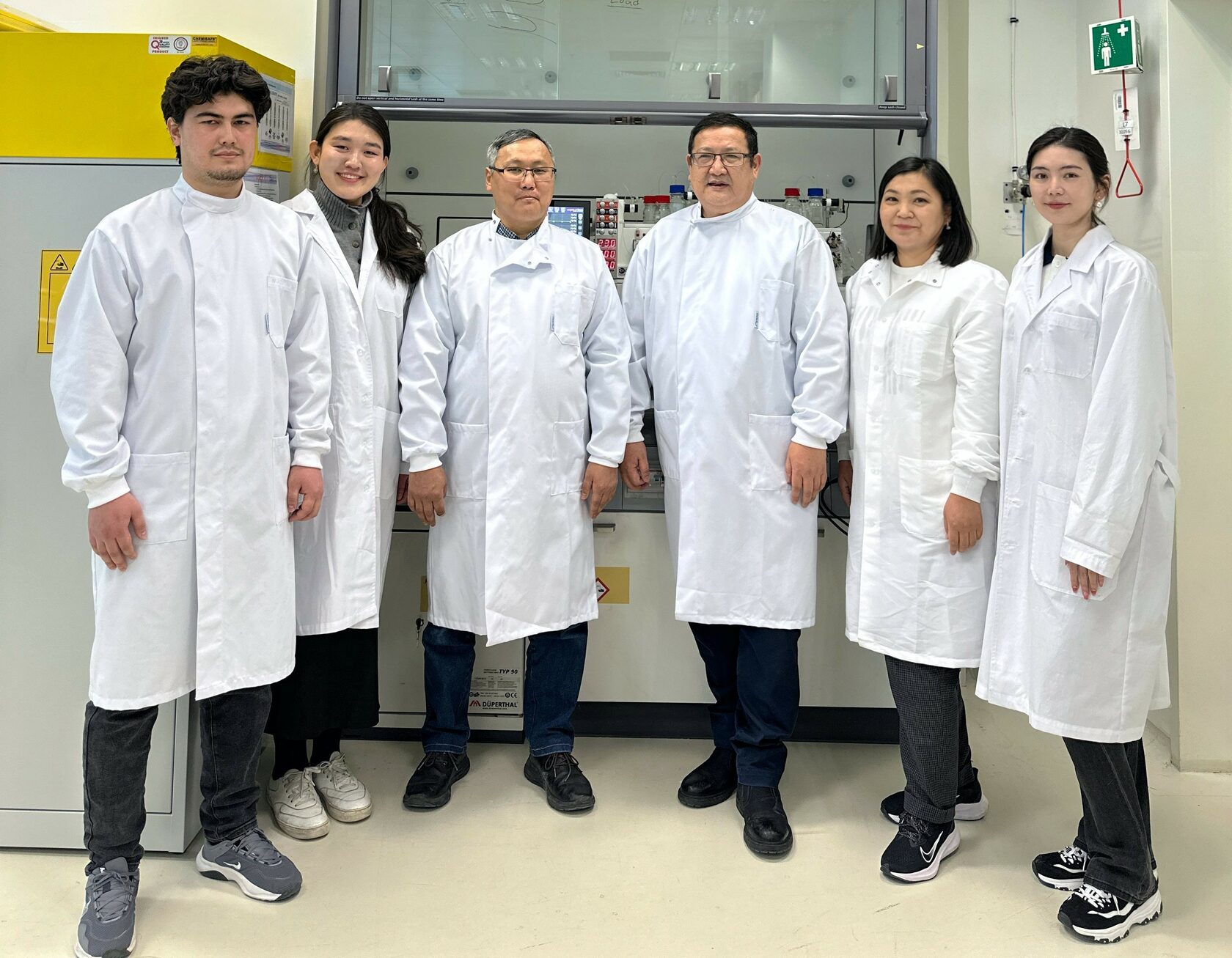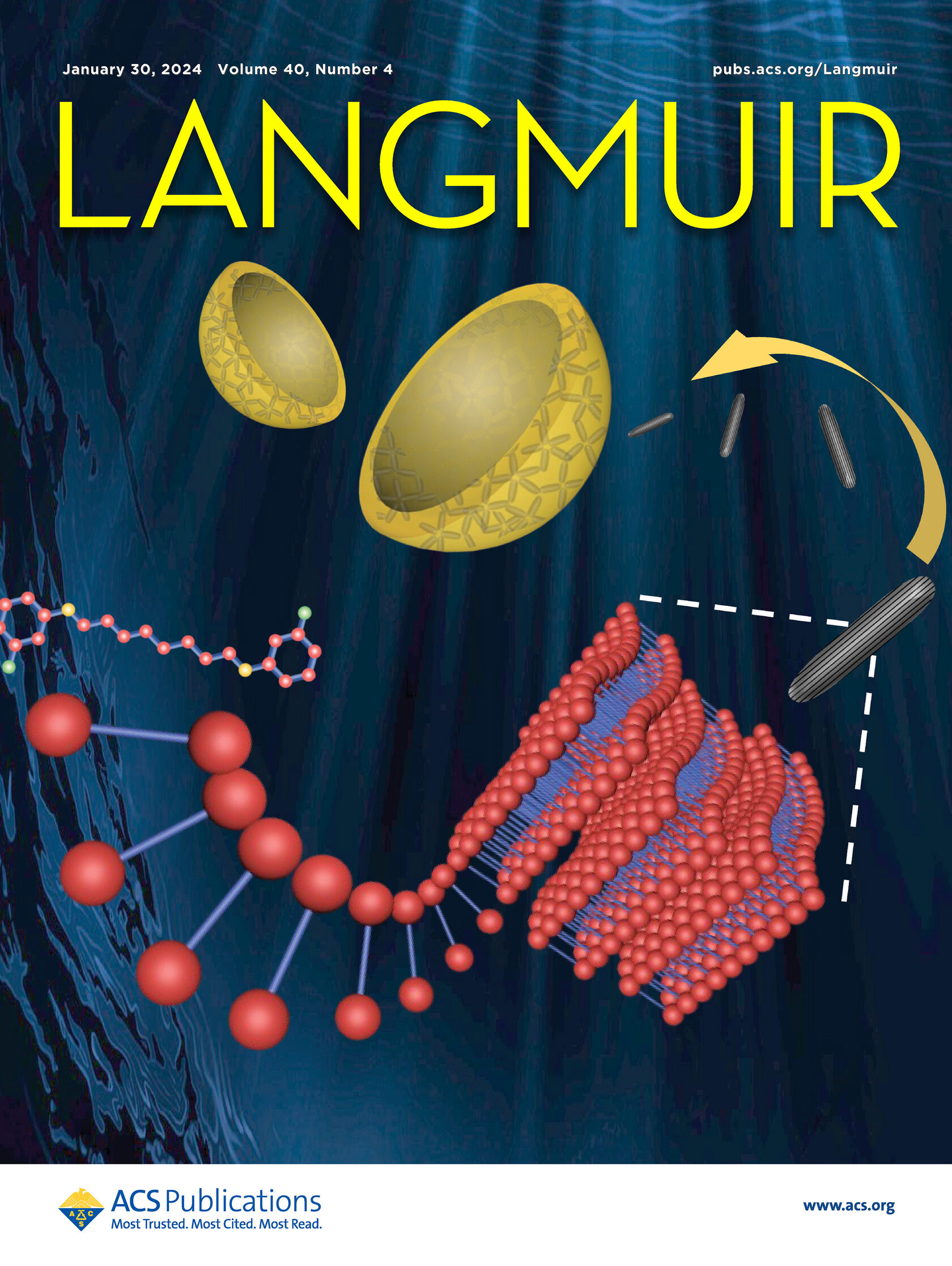
Exploring the Nano Frontiers: Designing Conducting Polymer Nanostructures
Prof. Salimgerey Adilov from Department of Chemistry, SSH and Prof. Nurxat Nuraje (SEDS) in collaboration with Prof. Tri Pham (SSH) developed tunable adhesive conducting polymers based on aniline derivative. The article titled “Controlled Synthesis of Polyaniline-based Nanomaterials with Self-assembly and Interface-Manipulation” was published in Langmuir journal (an ACS journal, link) and featured on the cover page.
Polyaniline is a type of conductive polymer that has many potential applications in the fields of energy, medicine, sensors and adhesives. However, it is a challenge to synthesize polyaniline nanomaterials with different forms and functions. A team of researchers from Nazarbayev University and Al-Farabi Kazakh National University has developed a novel method to solve this problem. They used a bicontinuous microemulsion reactor, which is a mixture of benzene, ethanol and water, to polymerize an aniline derivative monomer. By changing the concentration, pH and dopant of the reaction, they were able to control the morphology of the polyaniline nanomaterials. They obtained nanorods, nanobowls, hollow spheres, nanosheets and adhesive films with different properties. They also showed that the polyaniline nanomaterials can be used for hydrogen sensing, thermoelectric conversion and gecko-inspired adhesion. They also fabricated porous 3D polyaniline and its composite with carbon nanotubes, which exhibited improved electrical conductivity and thermal stability. This study provides a simple and versatile approach for the design and synthesis of polyaniline-based nanomaterials with self-assembly and interfacial manipulation. It also opens up new possibilities for exploring the applications of conductive polymers in various fields.
To read the full article, click this link.
Polyaniline is a type of conductive polymer that has many potential applications in the fields of energy, medicine, sensors and adhesives. However, it is a challenge to synthesize polyaniline nanomaterials with different forms and functions. A team of researchers from Nazarbayev University and Al-Farabi Kazakh National University has developed a novel method to solve this problem. They used a bicontinuous microemulsion reactor, which is a mixture of benzene, ethanol and water, to polymerize an aniline derivative monomer. By changing the concentration, pH and dopant of the reaction, they were able to control the morphology of the polyaniline nanomaterials. They obtained nanorods, nanobowls, hollow spheres, nanosheets and adhesive films with different properties. They also showed that the polyaniline nanomaterials can be used for hydrogen sensing, thermoelectric conversion and gecko-inspired adhesion. They also fabricated porous 3D polyaniline and its composite with carbon nanotubes, which exhibited improved electrical conductivity and thermal stability. This study provides a simple and versatile approach for the design and synthesis of polyaniline-based nanomaterials with self-assembly and interfacial manipulation. It also opens up new possibilities for exploring the applications of conductive polymers in various fields.
To read the full article, click this link.
